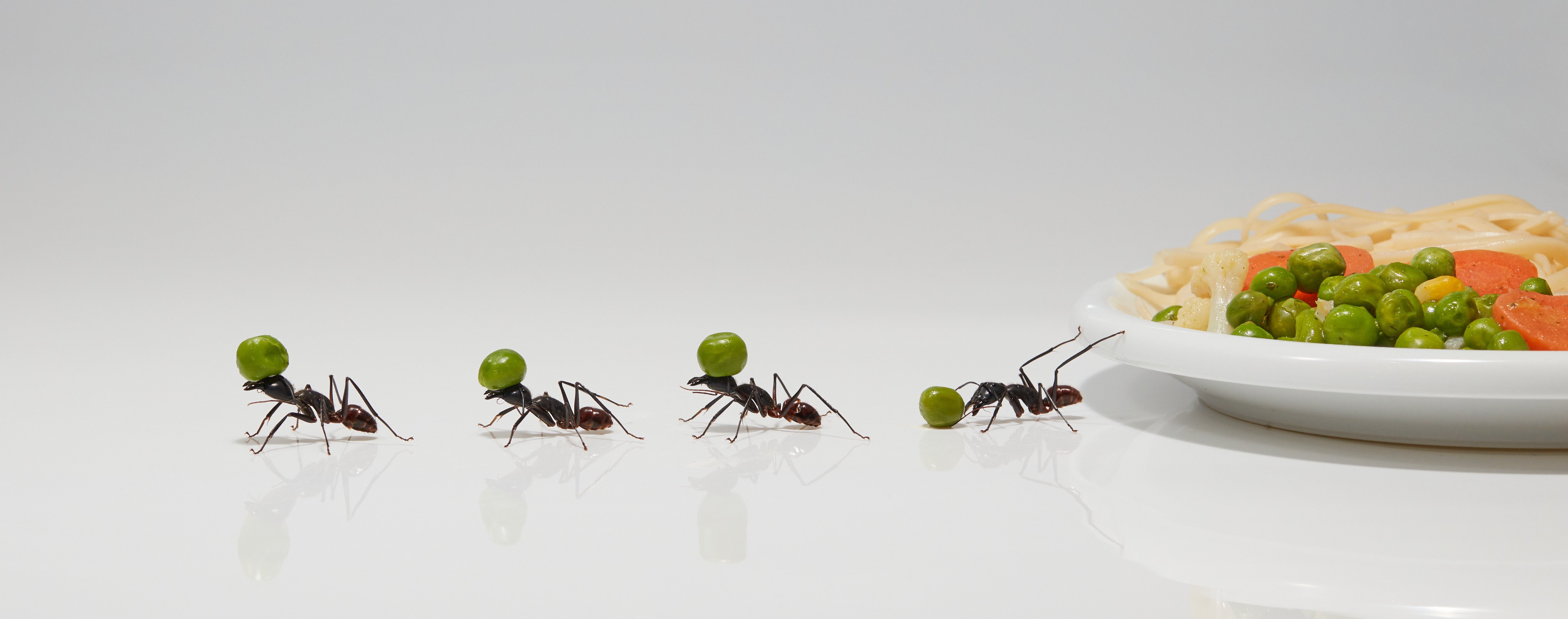Ant Control Maintenance: Keeping Your Home Ant-Free for the Long-Term

There are many advantages to life in the mid-Atlantic: the temperate climate, the rich history, the great food, and all the beaches, parks and attractions. But as great as it is to live in the region, we sometimes face tiny intruders that upset our standard of living: ants. This article focuses on empowering you with knowledge about these small invaders and effective ant control in New Jersey, Delaware, Pennsylvania and the Eastern Shore of Maryland. We'll delve into the life cycle of ants, find out why they are more than just annoying, and how to sustainably keep them at bay.
The Life Cycle Of Ants: How Ant Colonies Develop
Ever wonder why your attempts to get rid of ants sometimes seem futile? The answer lies in understanding their life cycle. You see, an ant's life isn't as simple as it seems. Their journey from egg to full-grown worker ant involves four key stages that we should understand:
- Egg: The life cycle begins when the queen lays an egg, often thousands at a time.
- Larva: After hatching, we see the worm-like larvae, which are voraciously hungry and dependent on the worker ants.
- Pupa: This is the metamorphosis stage. These larvae transform into pupae, the cocoon stage before maturity.
- Adult: The final stage is the birth of a worker ant, soldier, or queen, ready to serve the colony or start a new one.
Recognizing this cycle equips us with the understanding to disrupt it, preventing the ants from turning our homes into their dining rooms. Remember, knowledge is the first step in maintaining an ant-free household.
Ant Problems: Ants In The Home Can Be More Than A Nuisance
We often underestimate the problems that ants can pose. Yes, their minute size may deceive us, but they indeed punch above their weight in terms of causing disruptions. That's why effective ant control for homeowners is a matter that deserves serious consideration.
It's not just about the odd ant finding its way to your sugar bowl; it's about the potential threats they pose to your home's hygiene and safety. From contaminating your pantry to causing structural damage to your precious home, their impact can be far-reaching.
Some ants are also known to bite or sting, causing discomfort and, in some cases, allergic reactions. And then, there's the psychological unease of living with hundreds of crawling insects.
That's why homeowners must not take the issue lightly. Addressing ants swiftly and professionally helps ensure your home remains the comfortable and safe sanctuary it's meant to be.
Professional Ant Control: A Great Way To Get Rid Of An Infestation
When an ant infestation is weighing on your peace of mind, there's no need to panic. Viking Pest Control is here to lend a hand. It's important to remember that not all ants are created equal; different types of ants require different treatment methods. That's where we come in.
Our team is well-versed in the myriad ways of ants and equipped with the latest tools and high-quality products to treat your ant problems. We get down to the root of the issue, identify the species plaguing your home, and implement tailored solutions.
So when ants decide to crash your home, don't let them take over. You've got Viking Pest Control to back you up. Give us a call today, and let's work together to bring back the calm and ant-free living you deserve.
Ant Prevention Tips: Keep Your Home Ant-Free
Maintaining an ant-free home isn't just about reactive measures; proactive steps play a critical role, too. Here are some handy ant prevention tips to help fortify your home against those pesky intruders:
- Cleanliness: Quick clean-up of food spills and crumbs prevents ants from treating your home like an all-you-can-eat buffet.
- Sealing openings: Make sure to plug any potential entrances around your house.
- Food storage: Store your food in airtight containers, creating an impenetrable fortress for ants.
- Trash discipline: Keep your garbage bins empty and clean on a regular basis.
- Landscaping: Regularly trim tree branches and shrubs near your home. Ants often use these for bridges into your house.
- Water and moisture: Manage moisture levels in your home, as ants are attracted to damp areas. Fix leaky pipes and ensure good ventilation.
- Regular inspection: Perform routine checks in and around your home for signs of ant activity. Early detection can prevent a minor problem from becoming a major infestation.
By incorporating these practices into your daily routine, you can effectively create an ant-unfriendly environment. However, if the invasion gets out of hand, don't hesitate to reach out to Viking Pest. Together, let's keep your cherished home a place of comfort, not a playground for ants.











